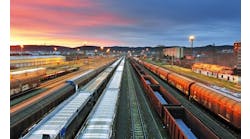The U.S. economy has begun the process of rebalancing away from excessive reliance on consumer spending and housing activity towards growth spurred by investment and exports, according to a quarterly economic forecast from the Manufacturers Alliance/MAPI.
The report predicts that inflation-adjusted gross domestic product (GDP) will expand by 2.8% in 2010, decelerate to 2.5% growth in 2011, and increase by 3.2% in 2012. The 2010 and 2011 forecasts are down slightly from the previously estimated 2.9% and 2.6%, respectively, from the August 2010 quarterly report. The current report offers MAPI’s initial forecast for 2012.
“Consumers are deleveraging and paying off debt, and we do not believe easy credit will return in this expansion,” says Daniel Meckstroth, chief economist with Manufacturers Alliance/MAPI. “Furthermore, consumers have a pressing need to spend less than their income growth in order to rebuild the wealth needed for retirement. Faster growth outside of personal consumption expenditures causes a rebalancing of economic resources. Investment in equipment, software, and structures is expected to expand. Another driver of growth is exports. The decline in the value of the dollar and strong growth in emerging economies allows domestic firms to expand foreign sales.”
Manufacturing production is expected to show 5.8% growth in 2010, 4% growth in 2011 and 4.9% growth in 2012.
Production in non-high-tech industries is expected to increase by 5.1% in 2010, by 2.8% in 2011, and by 4% in 2012. High-tech manufacturing production, which accounts for approximately 10% of all manufacturing, is anticipated to improve at a much higher rate, with impressive 13.6% growth in 2010 followed by 12.3% growth in 2011 and by a 14.7% gain in 2012.
The forecast for inflation-adjusted investment in equipment and software is for 15.2% growth in 2010, 11.7% growth in 2011, and 8.2% growth in 2012. Capital equipment spending in high-tech sectors will also continue an upward trend. Inflation-adjusted expenditures for information processing equipment are anticipated to increase by 12.9% in 2010 and by 7.2% in 2011 before decelerating to 4.8% in 2012.
MAPI expects industrial equipment expenditures to advance by 6.9% in 2010 before surging by 20.2% in 2011 and by 8.2% in 2012.
“A higher level of factory capacity is a trigger for capital investment to repair and replace equipment, especially when corporate profits are at a very high level,” Meckstroth says.
The outlook for spending on transportation equipment is for robust 60.3% growth in 2010, 22.7% in 2011, and 23.1% in 2012. Spending on non-residential structures will decline through 2011 before advancing in 2012. This GDP expenditure category is expected to fall by 13.8% in 2010, and decrease by 3.5% in 2011, before reversing course to 6.4% growth in 2012.
Exports and imports will both see gains. Inflation-adjusted exports are anticipated to improve by 11.5% in 2010, by 7.8% in 2011, and by 8.7% in 2012. Imports are expected to grow by 13.2% in 2010, by 6.1% in 2011, and by 4.5% in 2012. MAPI forecasts overall unemployment to remain high, averaging 9.7% in 2010, 9.5% in 2011 and 8.9% in 2012. Manufacturing is expected to see a hiring increase with the sector forecast to add 131,000 jobs in 2010, 275,000 jobs in 2011, and 300,000 jobs in 2012.
The price per barrel of imported crude oil is expected to average $76 in 2010, before heading to $83 per barrel in 2011 and to $88.50 in 2012.


